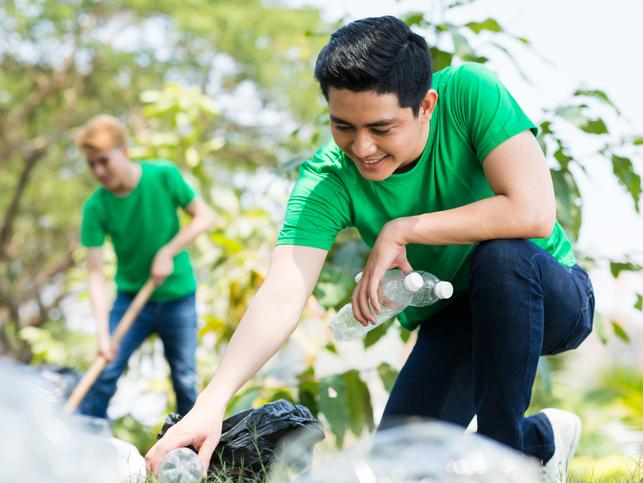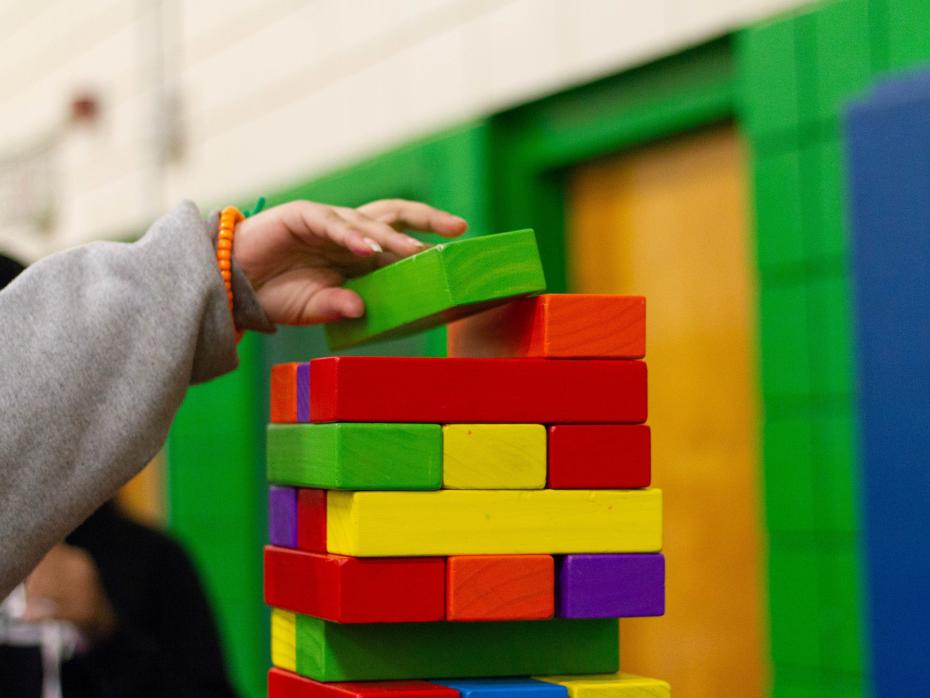
Four strategies to turn climate anxiety into student-led action

You may also like
Climate anxiety is on the rise, with 59 per cent of people aged 16 to 25, across 10 countries, feeling very or extremely worried about climate change, according to a study by The Lancet. Of those included, 84 per cent were at least moderately worried.
This is something we’ve noticed, with young people eager to take matters into their own hands and do what they can to help tackle the climate crisis. Over recent years, we have seen increased student demand for sustainable initiatives and events. In the 2023/24 academic year, we hosted 22 events – ranging from tree planting and nature volunteering, to inner-city clean-ups and fashion markets.
Harness student voice to include institutional responses
Involving students in university decision-making around sustainability has proved invaluable. The student union’s ethics and sustainability advisor, voted for by fellow students, sits on the school’s Sustainability Leadership Board. This board, chaired by LSE’s deputy president and vice-chancellor, is the school’s most senior sustainability committee and is responsible for driving change and monitoring the delivery of the school’s Sustainability Strategic Plan. The ethics and sustainability adviser plays a key role on the board, making sure student voices are heard in the university’s sustainability decisions.
- How can we improve the sustainability of labs?
- How to cultivate a green campus: the journey to carbon neutrality
- Let’s give learners on all levels the skills for a green future
Students are also encouraged to play a vital role in shaping and developing the university’s curriculum. Launched in 2022/23, the Education for Sustainability Internship Programme enables 10 students per year to work as research assistants, helping embed sustainability into specific course curricula through the identification of sustainability-related frameworks, concepts, case studies and readings.
Support hands-on action through climate-focused opportunities
Hands-on volunteering plays a significant role in addressing climate anxiety, transforming feelings of helplessness into those of empowerment and purpose. Climate anxiety can be paralysing, so it’s important that we offer access to a variety of volunteering opportunities through the year, enabling students to engage in sustainable change and foster a sense of agency in climate issues.
Visits to green spaces (both on our LSE campus and in wider London) are always popular. Nature and outdoor experiences can have a profound impact on our mental health – and therefore our emotional response to the climate crisis.
During Mental Health Awareness Week, we hosted a visit to our rooftop beehives, in which staff and students learned about the importance of biodiversity and the role that bees play, and experienced first-hand the benefits of outdoor experiences. We continue to run multiple beehive visits throughout the year, as well as nature volunteering days, litter picks and city clean-ups.
Recently, we have seen a surge in the popularity of sustainable fashion. Our recent collaborations with pre-loved marketplace Hazaar have enabled students to engage in the industry first-hand – as both customers and vendors. Throughout the year, we host a series of sustainable pop-up markets, encouraging the purchase and resale of pre-loved items and supporting the circular economy.
Encourage progress through student-led innovation
LSE’s Sustainable Projects Fund (SPF) encourages student-led innovation by providing financial support for their own sustainability initiatives. This funding – a pot of £20,000 – is generated through a 25p levy on the sale of single-use plastic bottles in on-campus catering outlets. This approach fosters creativity, innovation and entrepreneurship, as students design and execute real-world solutions to environmental challenges.
For example, in 2023/24, the SPF was used to fund the Rosebery Hall Garden Project – leading to the installation of hydroponic towers, research projects such as ”Why don’t some students engage in sustainability initiatives?”, and international development projects such as “Sierra Leone: Teach them young”. A full list of the SPF-funded projects can be found on LSE’s Sustainability webpages.
The SPF allows students an opportunity to make tangible contributions to combatting the climate crisis – helping alleviate feelings of climate anxiety.
Facilitate climate-friendly habits
Tweaking small habits daily to help the environment can make a big difference on a mass scale. We have introduced several measures on campus to help students make more sustainable choices.
These include offering a range of cycling facilities to encourage sustainable transportation. On campus, we provide secure bike storage areas, as well as shower and changing facilities to support cyclists.
We also promote cycling through our Dr Bike sessions, usually held once per term, that provide free basic bike repairs from professional mechanics.
We continue to explore methods to make sustainable travel more accessible to and from campus.
We encourage sustainable food choices at campus outlets by using carbon impact labels. This system categorises dishes into high, medium and low carbon options and helps raise awareness about different food choices. As a result, 54.5 per cent of the meals sold across LSE Catering were low carbon in 2022/23.
These strategies have helped our higher education institution harness the climate anxieties our students are feeling and turn them into action for change.
Will Ellis is sustainability communications and engagement officer at the London School of Economics and Political Science.
If you would like advice and insight from academics and university staff delivered direct to your inbox each week, sign up for the Campus newsletter.


